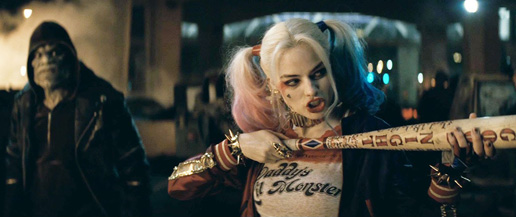|
|
Top Film Industry Stories of 2015 #8:
|

|
All observers must agree that the special treat of a previously unseen clip, one crafted specifically at Comic-Con, should remain exclusive to the participants. To be fair, almost everyone involved with the process did their part. In the new age, however, it only takes one person’s lack of ethics to cause a public relations nightmare. When someone breaks that unspoken agreement, the internet sees what the good people at Comic-Con see, whether this is the desire of the producers or not. Spoilers: it’s not what they want. It never is.New at BOP: Share & Save
![]() Tweet
Tweet
![]() Print this column
Print this column
Many of the people in control of the Hollywood studio system have been active participants for at least a decade. Some have resumes that span half a century or more. Take a moment to think about how long it took to teach your parents or, gulp, grandparents how to use Netflix. Now consider that people of a similar age run movie studios. They have little awareness of what Twitter is, much less Periscope. The idea that a phone no longer connects to a plug in a wall is shocking enough. The idea that it’s also capable of photography, videos, and movie display is nothing short of wizardry to people who once had to buy magazines draped in plain brown wrappers if they wanted to look at naked people.
The world has changed. The studio system has lagged behind. Today, airing a film clip at Comic-Con means that a single person holding up their smartphone will link the world to the event. Rather than seeing the footage in splashy colors and high-quality CGI like the people in the audience, people who watch on the Internet will watch blurry, shaky camerawork that fails to capture the nuance of the footage. In other words, the process works exactly backward from how studios intend it. They expect to deliver a treat to loyal fans, something few people will even know transpired.
What actually happens is that motivated hackers, trolls, and even the occasional movie buffs do everything in their power to access the footage. Then, they leak it online. Twenty minutes later, major sites have picked up the story. Within hours, it’s trending on Twitter and Facebook, and all the people who want to watch it have already done so. This isn’t brand new in 2015 nor is it in any way surprising.
The strange aspect is that studios keep letting it happen and when it does, they react terribly. In July, the Comic-Con exclusive footage for Suicide Squad leaked just prior to the event. How did Warner Bros. respond? They tersely informed Deadline the following: “It will be incumbent on Comic-Con organizers to improve the security measures to catch pirates, or there will be fewer special presentations going forward.” In other words, they refused to take responsibility for an obvious mistake.
Doubling down on the poor public relations, Warner Bros. then announced that they would never post the Suicide Squad footage from Comic-Con. Hey, remember that Suicide Squad Comic-Con footage you watched in 1080p glory off the Warner Bros. newsfeed? Yes, that’s the clip they swore they wouldn’t post. Frankly, Warner Bros. looked like tone deaf bunglers the likes of which we haven’t seen since Amy Pascal fell on her sword for Sony last Christmas. Their entire behavior was that of someone who used AOL for all their Internet needs. They seemed comically out of touch with the bread and butter demographic for movies over the past 50 years, people under the age of 30. Meanwhile, Fox handled the situation slightly less awkwardly, but they too rattled their sabers about Comic Con needing better security measures.
Notably, one other studio experienced a similar leak over the past 15 months. Disney’s vaunted Marvel Studios worked hard to foster a measure of importance to their trailer for The Avengers: Age of Ultron. The successor to one of the most popular movies of the 21st century was to debut on Agents of S.H.I.E.L.D., their ABC show. In the latest corporate attempt to boost synergy among their brands, Disney sought to spike a rating for the struggling action series by giving it THE trailer of the time.
Hackers beat them to the punch, unveiling the clip a day sooner than the studio intended. Did Marvel blame someone else for the incident? Well, sort of. Rather than cry over spilt milk, they cheekily posted two words on their Twitter feed. It read, “Dammit, Hydra!” And that’s how the Internet is won. Had Warner Bros. or even Fox displayed a splash of humor, people might have viewed their public relations fiascos as additional entertainment. Instead, the perception of both companies is that they’re stuffy and out of touch.
This modern problem provides a cautionary tale about a business taking itself too seriously in the digital age. To date, Warner Bros. in particular has chosen to whine incessantly and blame other people. Not coincidentally, people love Marvel movies exponentially more than DC, which is sad since DC Comics is by nature more upbeat and fun by nature. They need to learn the new rules of social media. When life gives you lemons, you should make lemon memes.
Continued:
1
2
[ View columns by David Mumpower ] [ Email this column ]

|
|
|

|
Friday, July 18, 2025
© 2025 Box Office Prophets, a division of One Of Us, Inc.

